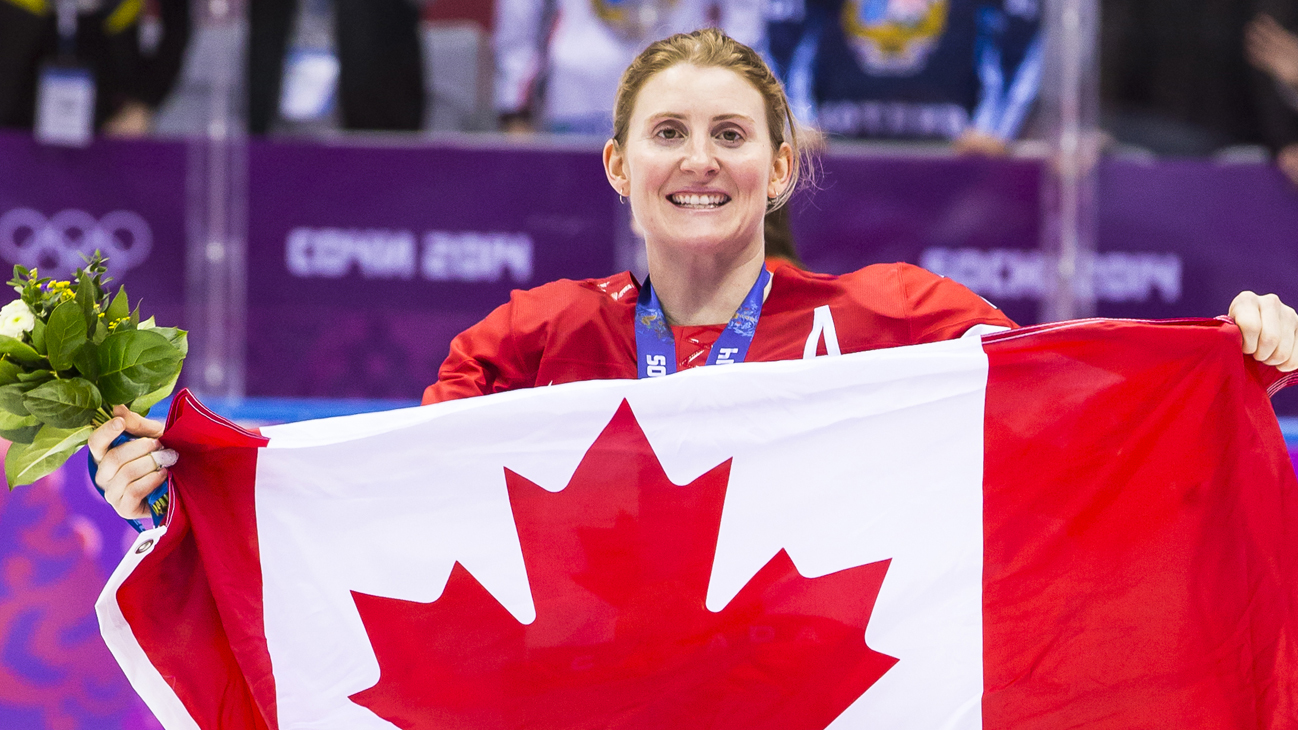Hayley Wickenheiser is regarded as one of the best female hockey players in the world. As a decorated Olympian, she has led her team to four gold and one silver medal as well as being named the tournaments’ most valuable player in both 2002 and 2006.
The five-time Olympic medalist, former Team Canada captain and founder of the Wickenheiser World Female Hockey Festival says the competitive spirit has been with her since birth. This fall, Hayley Wickenheiser received yet another honour: A star on Canada’s Walk of Fame. In a recent interview with The Globe and Mail, she shares some of the secrets to her success, including why being off-balance for a while is okay.
The competitive spirit is a competitive edge
I think that it’s almost impossible to be a top-level athlete and not be competitive – I’ve never known anyone who fits that description. That said, there’s certainly a range. Some people can turn it on for a game; for others, it doesn’t matter if it’s just a casual game of Ping-Pong, they’re going for blood. I tend to fall into that second group. I think I was born with a competitive spirit. I remember being in Grade 4 and there was a teacher who put the fear of God into us about getting good marks, and I took it to the next level. I was studying every single night and just wouldn’t let up. My parents would try to persuade me to go out and play – isn’t it supposed to be the reverse? I have tried to tone it down as I’ve gotten older in terms of areas away from hockey, but I do think there is a connection. I have met so many athletes over the years and the ones who are the best have often been the ones that are the most competitive.
Balance is a bunch of bull
This idea that people, and especially women are supposed, to achieve balance in their day-to-day life strikes me as impossible and pretty ridiculous. My life is completely unbalanced – it’s extreme bouts of intensity and games, followed by some downtime and then back up again, playing, playing, playing or studying for exams Wickenheiser is pursuing a master’s degree in medical science]. I think that’s okay. What I try to do is think about balance in terms of how I spend my time over a year. I will know that certain periods are going to be just crazy chaos with work, so I will book some downtime, carve out time for family or friends or whatever I have decided is a priority. My life doesn’t offer a lot of extra time at this point, so it’s really about making conscious decisions about how I want to spend it.
Age is a non-issue
I recently had a conversation with [six-time Olympic medalist] Clara Hughes about retirement and everyone having an opinion on when is the right time. She told me, ‘Hayley – it’s just noise.’ When I was the youngest player on the team it was ‘she’s too young,’ and now I’m ‘too old.’ I think society and the media want to put athletes in a box, but the thing is, nobody checks your birth certificate on the ice. The way that sport and training have evolved, if you take care of yourself you can play for 10 years longer than you could before. We are certainly seeing that in the NHL with guys in their 40s. I have talked to so many other hockey players and other athletes about this and the feedback is always the same – when it’s time, you’ll know. I also have people in my life who I really trust, the kind of people who are honest with me about my game and where I’m at. Everyone should have people like that.
Be your own BFF
Some of the most useful advice I have learned in my field is that you have to be your own best friend. Enough people are going to criticize you and pick apart your strengths and weaknesses – there’s no need to do that to yourself. Instead I try to give myself a break, be kind to myself. An Olympic year is incredibly stressful. There is so much pressure and there are high expectations and it can be tempting to be negative; I will slip into that and then I try to catch myself and do something nice for myself. It can be something so simple – go have a chocolate bar or a glass of wine or take another hour to sleep – it’s not the end of the world. I think happiness has a lot to do with giving yourself little tiny breaks when you need them.
Better is better than best
As soon as you stop thinking that you can get better and improve – that’s death. It’s a common rut that athletes get into, thinking: This has always worked for me, so I’m just going to keep doing what I’m doing. You get stale. I try to spend time with people who know more than I do and to pick their brains, to continually gather knowledge. I am always trying to get advice from the players I admire, constantly watching video and trying to improve my game. Switching it up is so important for me and that’s not just in terms of my physical routine. Your brain is a muscle and you’ve got to exercise it. If you don’t use it, you do lose it.
Courtney Shea/The Globe & Mail

